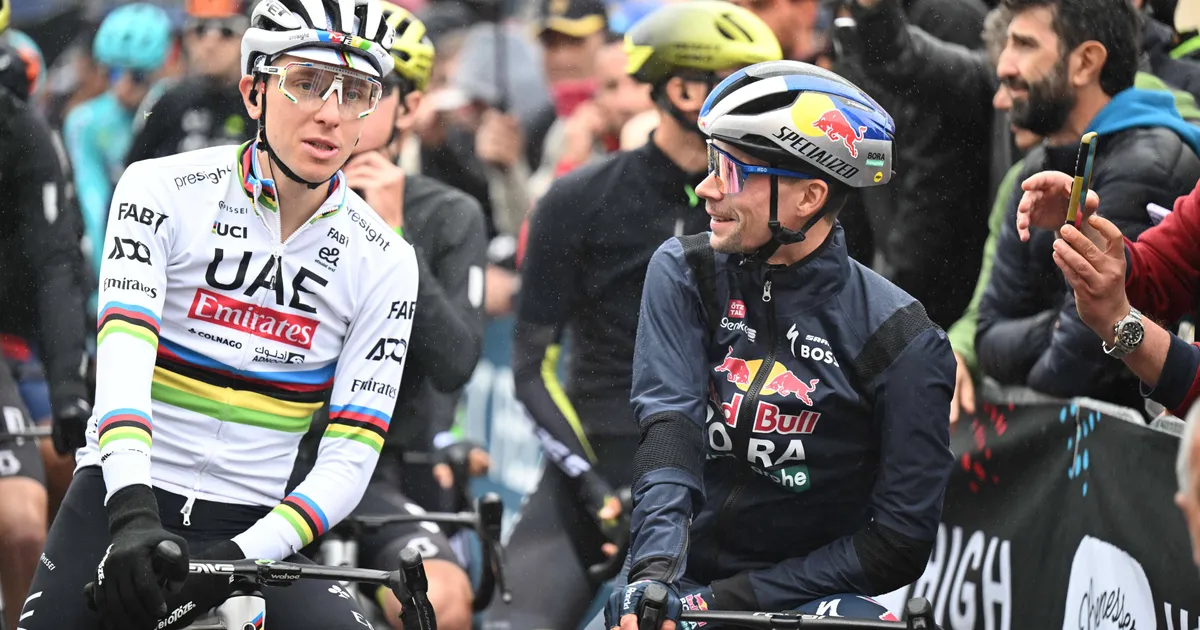without a single Grand Tour victory to one of the sport’s dominant forces,
producing champions across the biggest races in the world. Speaking at
Saturday’s Tadej Pogacar Cup Criterium in his hometown of Komenda, the
four-time Tour de France winner reflected on the extraordinary rise of
Slovenian cycling and its growing popularity among the country’s youth.
The criterium itself was proof of the sport’s surge in
domestic interest, drawing a record 371 cyclists to the start line, including
six WorldTour-level riders. For Pogacar, this swelling participation base is
perhaps the most promising sign of all. “Slovenian cycling is developing really
well, which is best seen in the youngest,” he told S.Sportal. “More and more of
them are joining clubs, competing and showing interest in cycling. And the more
a child is in cycling, the greater the chance that one of them will be stubborn
and persistent enough to reach the member category and succeed.”
country of just over two million people. Pogacar’s own career so far includes
five Grand Tour titles, nine monuments, a world championship, and over 100 wins.
His great contemporary, Primoz Roglic, has matched him in Grand Tour victories
with five, and added a monument and Olympic time trial gold to his illustrious
palmares. Matej Mohoric has proven himself one of the peloton’s most versatile
riders, winning a monument and excelling across multiple disciplines.
And the conveyor belt of talent is not slowing. Among the
newest names is Jako Omrzel, who has just moved up from the junior ranks and
already won the biggest under-23 stage race of the season, alongside a national
championship, a feat that even Pogacar himself did not achieve in his first
year at that level.
For years, we have become accustomed to a huge number of
Dutch and Belgian riders in the professional peloton. If Pogacar and his nation
continue at the current rate, Slovenia could become one of the most well
represented countries in the peloton in the coming years.
Success on the bike has created a feedback loop of
inspiration and ambition. “Even those of us who race at the highest level
constantly feel the pressure to justify past results again,” Pogačar said. “The
same applies to the younger ones. For some, it is pressure, and for others, it
is additional motivation, because through us they see that this is not some
other, unattainable world, but an opportunity that they can seize themselves.”
That opportunity could soon grow even closer to home.
Slovenia has launched an initiative to host the Grand Départ of the Tour de
France in 2029, with the first three stages starting on home soil. If
successful, it would mark the first time the Tour has visited Slovenia.
“This would be exceptional for Slovenian sport and the
growth of cycling,” Pogacar said about the potential Grand Depart. “When I was
ten years old, we could only dream of going to the Giro or the Tour to watch a
stage. It was far away and many people couldn’t afford it. If the Tour had been
in Slovenia at that time, this world would have seemed even closer to me and I
would have wanted to progress even faster in cycling.”
Pogacar avoided weighing in on the financial feasibility of
the plan, and focussed on a positive outlook for the event. “Everything is
relative, for some it is expensive, for others it is not. But I am definitely
looking forward to the Grand Départ being in Slovenia.”
